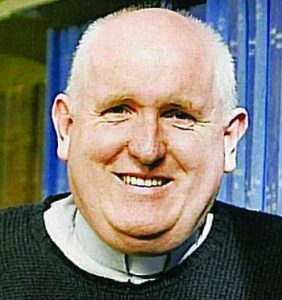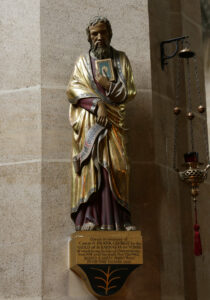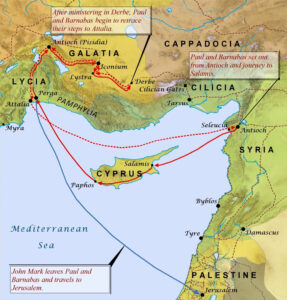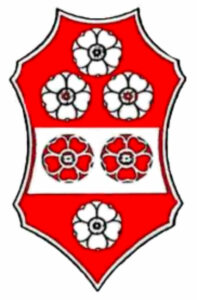Saint Barnabas the Apostle

Fr Mervyn Duffy SM
On 11 June the Church celebrates Saint Barnabas the Apostle. This is a very rare designation for a saint. Barnabas is not celebrated as a martyr, nor as a bishop. He is an Apostle, yet not one of the Twelve Apostles. ‘Apostle’ means ‘one sent’ and can be translated as ‘delegate’ or ‘envoy’. In New Testament times it was a rank in the Church. St Paul argues strongly that he is an apostle (1 Cor. 9:1 “Am I not an apostle?”) The Pauline epistles identify by name another five people as apostles: Silas (1 Thes. 1:1, 2:6), Timothy (1 Thes. 1:1, 2:6) Apollos (1 Cor. 4:9) and, intriguingly, Andronicus and Junia (Romans 16:7). Barnabas and Paul are named as apostles in the Acts of the Apostles “But when the apostles Barnabas and Paul heard of this …”(14:14)

Photo by Brother Lawrence Lew, O.P.
Barnabas is introduced in chapter 4 of the Acts of the Apostles. “There was a Levite, a native of Cyprus, Joseph, to whom the apostles gave the name Barnabas (which means ‘son of encouragement’). He sold a field that belonged to him, then brought the money, and laid it at the apostles’ feet.” So, he is another of the saints (like Peter and Francis of Assisi [Giovanni]) who are known by their nicknames. ‘Son of Encouragement’ sounds like a very positive description and the two verses depict him as an early and generous member of the Jerusalem church community.
An issue for the earliest Christian communities was whether they were a sect of Judaism, preaching the gospel only to their Jewish co-religionists or if they should seek to convert gentiles, that is, non-Jews. This question was particularly acute in the cosmopolitan city of Antioch where the Jews were in a minority. There was an Aramaic-speaking Jewish community, a larger Greek-speaking gentile population and a significant group of Greek-speaking Jews, called the Hellenists. According to chapter 11 of the Acts “some men of Cyprus and Cyrene who, on coming to Antioch, spoke to the Hellenists also, proclaiming the Lord Jesus. The hand of the Lord was with them, and a great number became believers and turned to the Lord.”
News of this came to Jerusalem and they chose to send Barnabas as their envoy to that Church. He was a Cypriot, he could speak Greek and, according to Luke, “he was a good man, full of the Holy Spirit and of faith.” (Acts 11:25) Barnabas, presumably because of a prior connection, chose to seek out Saul/Paul in Tarsus to aid in the task of teaching the Gospel to Greek-speakers.
The story of Barnabas is entwined with that of Paul, their names are often paired. After working together for a year in Antioch they went to Jerusalem to deliver money to that Church for famine relief and to get the support of the apostles Peter, James, and John for their Gentile mission (Gal. 2:1-10). They then returned to Antioch and, with John Mark, a cousin of Barnabas, set out for Cyprus to begin the ‘first missionary journey’.
 The Missionary Journey of Barnabas and Paul
The Missionary Journey of Barnabas and Paul
They initially preach in synagogues where there are some non-Jews, referred to as ‘God-fearers’, in attendance. At Antioch in Pisidia (not to be confused with the Antioch in Syria where they had started) they encounter Jewish resistance to their preaching but acceptance from their Gentile hearers. They choose to focus on evangelising the Gentiles.
This is a controversial decision and when they sailed back to Antioch in Syria, the church community again sent Barnabas and Paul to Jerusalem to discuss how non-Jews could be incorporated into Christianity. According to Paul’s account in his letter to the Galatians “James and Peter and John, who were acknowledged pillars, recognised the grace that had been given to me, they gave to Barnabas and me the right hand of fellowship, agreeing that we should go to the Gentiles and they to the circumcised.” (Gal. 2:9) Barnabas and Paul returned to Antioch taking the news that the Gentiles could become Christian without having to adopt Jewish practises.
Barnabas and Paul stay together in Antioch and Peter comes over from Jerusalem to visit the Church community. Then a dispute arises over how to put the decision about the Gentiles into practise. James represents one extreme on the issue, Paul the other, and Peter and Barnabas try for the middle ground. Paul’s account of the event, a stand-up argument before the church community, is:
“But when Peter came to Antioch, I opposed him to his face, because he stood self-condemned; for until certain people came from James, he used to eat with the Gentiles. But after they came, he drew back and kept himself separate for fear of the circumcision faction. And other Jews joined him in this hypocrisy, so that even Barnabas was led astray by their hypocrisy.” (Gal. 2:11-13)

Crest of St Barnabas featuring Tudor roses, worn on his feast day since medieval times.
When another missionary journey is being planned, Paul does not want John Mark to come because he left them during the first journey. The outcome is that Barnabas and Paul split up, Barnabas going with John Mark to Cyprus and Paul going with Silas through Syria and Cilicia.
With the New Testament record focussing on Paul, we hear very little of the later career of Barnabas. In 1 Corinthians, written about 56 AD, Paul refers to the fact that both he and Barnabas earn their own living. When Paul was imprisoned in Rome (61-63 AD) he refers to “Mark the cousin of Barnabas” being with him, which might mean that Barnabas has died.
So, we celebrate a saint who took a leading part in the life of the early church, who was involved in the hugely important decision that opened Christianity up to evangelise the world. He is well deserving of the title ‘Apostle’ and of his nickname ‘Son of Encouragement’. May St Barnabas encourage us in our living and spreading the Gospel today.
Tagged as: Apostle Barnabas, St Barnabas
Comments are closed.
 Entries(RSS)
Entries(RSS)